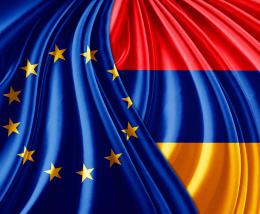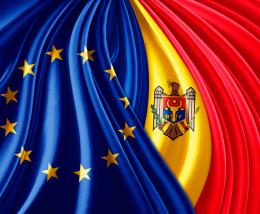European Economic
and Social Committee
Europa
In Europa onderhoudt het EESC betrekkingen met sociale partners en maatschappelijke organisaties in de Westelijke Balkan, in het Oostelijk Nabuurschap, in de EER-EVA-staten IJsland, Liechtenstein en Noorwegen, en in het Verenigd Koninkrijk.
Het follow-upcomité Westelijke Balkan – een permanent intern orgaan van het EESC – is het belangrijkste instrument voor het coördineren van de activiteiten van het EESC in deze regio. Een van de activiteiten van het follow-upcomité is de organisatie van het forum voor het maatschappelijk middenveld van de Westelijke Balkan, dat om de twee jaar wordt gehouden.
Het EESC werkt ook bilateraal samen met de landen van de Westelijke Balkan die toetredingsonderhandelingen zijn begonnen en met Turkije, via gespecialiseerde organen die zijn opgericht op grond van associatieovereenkomsten tussen deze landen en de EU. Het doel van deze gemengde raadgevende comités is de sociale partners en maatschappelijke organisaties te betrekken bij het toezicht op de pretoetredings- en hervormingsprocessen die mogelijk uitmonden in een EU-lidmaatschap. Elk comité bestaat uit een gelijk aantal leden van het EESC en van het partnerland en komt gewoonlijk een of twee keer per jaar samen.
Het EESC heeft ook een follow-upcomité voor het Oostelijk Nabuurschap opgericht, een intern orgaan dat als taak heeft om nauwere betrekkingen met het maatschappelijk middenveld in de landen in de regio – namelijk Armenië, Azerbeidzjan, Belarus, Georgië, Moldavië en Oekraïne – aan te knopen.
De belangrijkste samenwerkingsmechanismen met Armenië, Georgië, Moldavië en Oekraïne zijn de platforms voor het maatschappelijk middenveld, met behulp waarvan maatschappelijke organisaties uit zowel de EU als het partnerland toezicht kunnen houden op de uitvoering van de EU-overeenkomsten met deze landen en aanbevelingen aan de bevoegde autoriteiten kunnen opstellen. Bovendien zijn Oekraïne en Moldavië sinds 2022 kandidaat-lidstaten.
Wat Belarus en Rusland betreft wordt er gewerkt aan betrekkingen met organisaties van het maatschappelijk middenveld die nog steeds vrijelijk opereren en waarvan het merendeel in de EU is gevestigd. In afwachting van betere omstandigheden is het belangrijk om met elkaar in dialoog te blijven.
In de Europese Economische Ruimte (EER) vormen de EU-lidstaten en de drie EER-EVA-staten (IJsland, Liechtenstein en Noorwegen) samen een interne markt met een vrij verkeer van goederen, diensten, kapitaal en personen. Het EESC zit in het raadgevend comité van de Europese Economische Ruimte, waar onderwerpen van gemeenschappelijk belang worden besproken met vertegenwoordigers van de sociale partners uit de EER-EVA-staten.
Tot slot beschikt het EESC over een follow-upcomité EU-VK, dat vanuit het oogpunt van het maatschappelijk middenveld toezicht houdt op de betrekkingen tussen de EU en het Verenigd Koninkrijk van Groot-Brittannië en Noord-Ierland. Het houdt zich met name bezig met de uitvoering van het terugtrekkingsakkoord tussen de EU en het VK en het protocol inzake Ierland en Noord-Ierland, waarover het steeds in gesprek blijft met maatschappelijke organisaties uit het VK, en met de uitvoering van de handels- en samenwerkingsovereenkomst tussen de EU en het VK, waarvoor het samenwerkt met de interne adviesgroep van de EU in het kader van de handels- en samenwerkingsovereenkomst tussen de EU en het VK.






